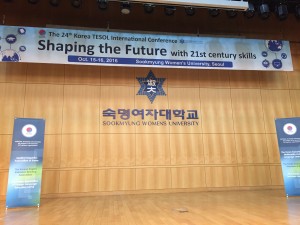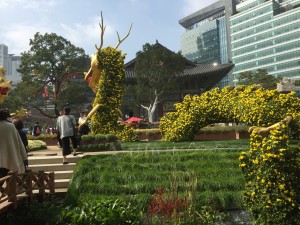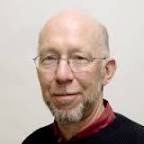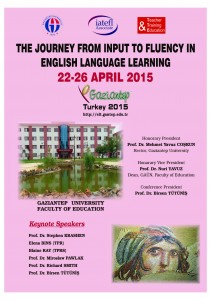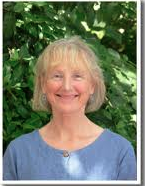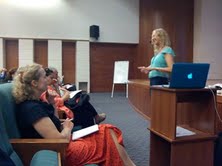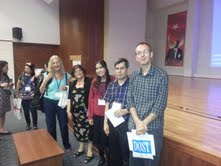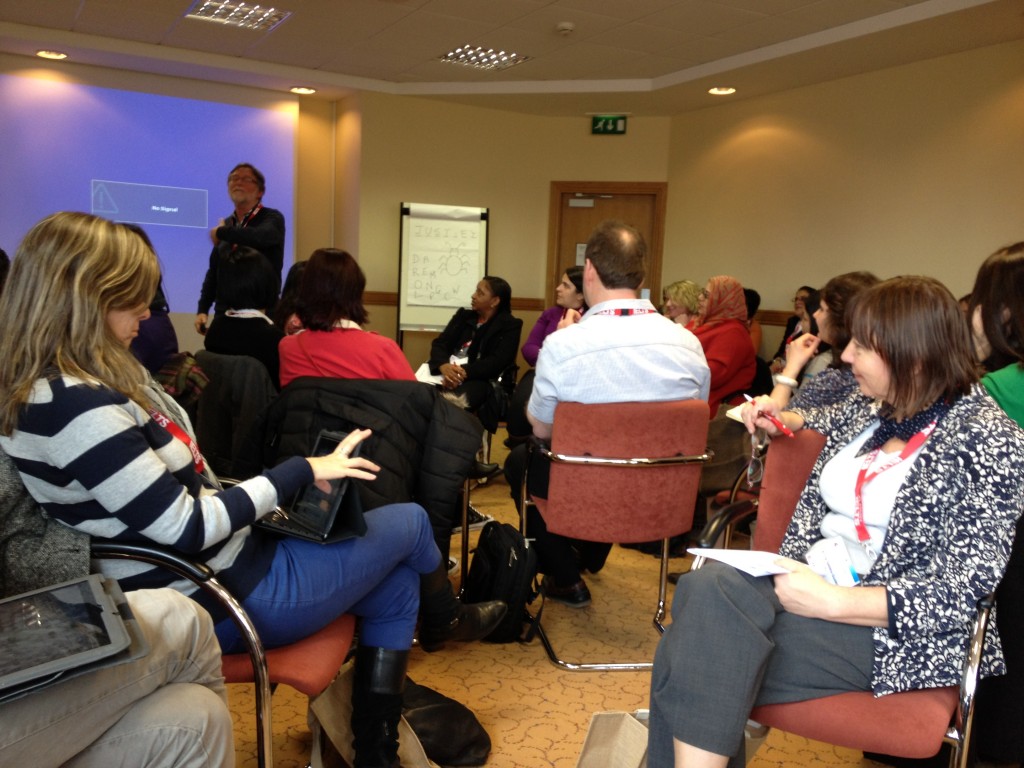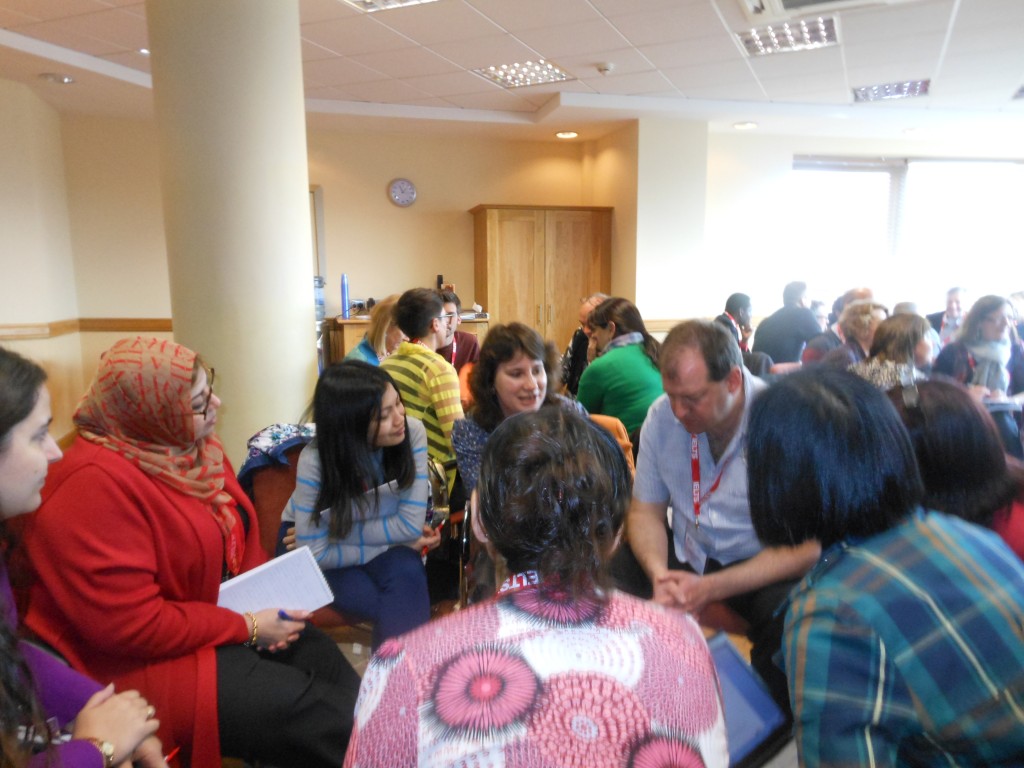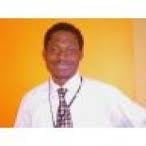I, Burcu Tezcan-Unal (TTEd SIG committee member, responsible for events, publicity and membership), attended this conferences with two talks as an invited and featured speaker thanks to my affiliation with IATEFL Teacher Training and Education Special Interest Group (IATEFL-TTEd SIG). My first talk was called “The demands of the 2020 job market, transferable skills and ELT”. I approached the theme of the conference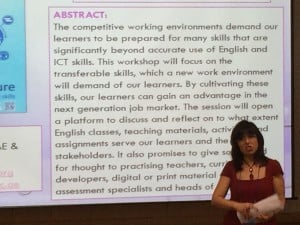 from a teacher training perspective focusing on why and how to teach the required skills. My second talk was called “Timeless interplay between learners, teachers and learning”, here I focused on the factors that impact or impede learning in a learning environment as well as the importance of teacher’s interventions that make a difference and I lead the participants to reflect on their contexts around these issues.
from a teacher training perspective focusing on why and how to teach the required skills. My second talk was called “Timeless interplay between learners, teachers and learning”, here I focused on the factors that impact or impede learning in a learning environment as well as the importance of teacher’s interventions that make a difference and I lead the participants to reflect on their contexts around these issues.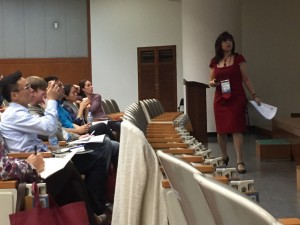
As a whole, the experience was so refreshing for me, for one, it was the first time I attended a conference in Ko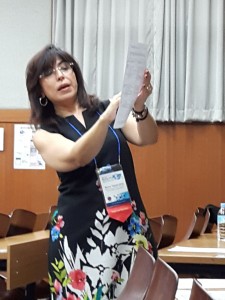 rea, I met colleagues working in that part of the world so well as Japan and Singapore, which was interesting. Also, I was the only IATEFL representative in the whole conference, which is interesting because normally there are a few people from IATEFL in every conference. So I felt honored and special. Finally, I was the only Turkish ELT professional and the only one representing the Middle East region, which was also interesting and added to the popularity of my sessions.
rea, I met colleagues working in that part of the world so well as Japan and Singapore, which was interesting. Also, I was the only IATEFL representative in the whole conference, which is interesting because normally there are a few people from IATEFL in every conference. So I felt honored and special. Finally, I was the only Turkish ELT professional and the only one representing the Middle East region, which was also interesting and added to the popularity of my sessions. 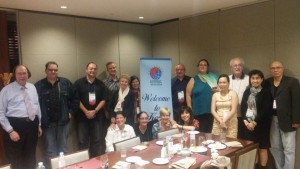
I went to the sessions of the other invited speakers mainly as I wanted to accumulate knowledge and information related to 21st Century skills to enhance my own understanding and share them with the IATEFL TTEd SIG members via our blog and website. There were two plenary speakers; Prof. Thomas Farrell from Canada whose focus was on reflective learning and reflective inquiry- being a prolific author in the field of reflective practices. Further information about him, his work and books could be obtained from this link: http://www.reflectiveinquiry.ca/ His session at the conference was called : Reflective practice for 21st Century Language Teachers
He advocates that reflective practice should not be ritualized mechanically, and states that the old idea overlooked the inner lives of teachers. According to his new framework, teachers’ practice should be holistic, and integrate mind, body and soul, it should also be multi dimensional, should not be egocentric but eco-centric.
His cyclical framework involves these five things: philosophy-principles- theory-practice-beyond practice
One should first reflect on his/her philosophy, perhaps looking into auto-biographical stories. One should ask ;“What is my legacy as a teacher? Teachers should allow silence in class, should not answer their own questions. Teachers should make use of the critical incidents as opportunities in which they can learn a lot about their students. Classroom is a rich environment for inquiry and recommended teachers to video tape themselves and transcribe their interaction to reflect on their teaching. Teachers think students are happy and learning the whole time- Instead of exams, quizzes, tests we should ask these questions to students:
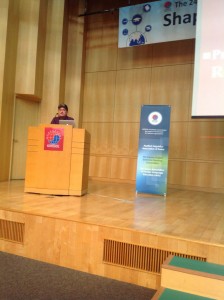 What was the class about?
What was the class about?
What did you learn?
What was difficult?
Prof. Farrell concludes by saying that” Reflective teaching is done by teachers and for teachers as opposed to research done by academics for the academia. We can create our own theory by reflective practice.
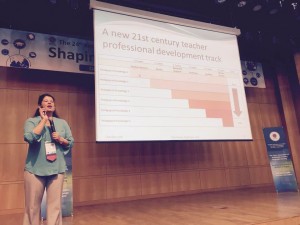 The second plenary speaker, Tracey Tokuhoma- Espinosa, was an amazing educator, and a very knowledgeable speaker who focused on teaching from the newest brain studies perspective emphasizing their impact on teaching and learning pedagogies. Her talk was called “The neurobiology of leaning and sustained change”. She advocates that all your learning is based on previous learning, and believes that teachers have the power to change, a good language teacher is a good teacher with knowledge of language, the more you know the more you can know and we should focus more on how and why of the learning than the what of the learning which is googlable.
The second plenary speaker, Tracey Tokuhoma- Espinosa, was an amazing educator, and a very knowledgeable speaker who focused on teaching from the newest brain studies perspective emphasizing their impact on teaching and learning pedagogies. Her talk was called “The neurobiology of leaning and sustained change”. She advocates that all your learning is based on previous learning, and believes that teachers have the power to change, a good language teacher is a good teacher with knowledge of language, the more you know the more you can know and we should focus more on how and why of the learning than the what of the learning which is googlable.
She recommended a couple of resources “the smartest kids in the world” a book by Amanda Ripley that may be an interesting read for educators, and the blog on Committed sardines referring to the teachers who believe in students and that they can make a change even in test driven societies. Tracey Tokuhoma also shared her slides https://drive.google.com/drive/folders/0B8RaPiQPEZ9ZaGNna0lvMEU1aEE?usp=sharing
the video summary of my book, Making Classrooms Better:
Part 1 Introduction (23:19minutes): https://drive.google.com/file/d/0B8RaPiQPEZ9Zb3hxVDY2OXlxNTQ/view?usp=sharing
Part 2 Interventions 1-23 (41:44 minutes): https://drive.google.com/file/d/0B8RaPiQPEZ9ZOWRMSkFTNFJVcDg/view?usp=sharingPart 3: Interventions 24-50 (43:12 minutes): https://drive.google.com/file/d/0B8RaPiQPEZ9ZdVREY041VW8yMzg/view?usp=sharing
Tracey Tokuhoma states that we make presumptions about how we learn, and how others learn. Teacher prejudices about intelligence influence students’ learning, in fact, it is the single most important thing that affect learning according to the extensive studies of Hattie (2012, 2016). Teachers should be given information on the fundamental information about how brain works. For example, the time in class should be used to teach skills and attitudes instead of knowledge that could be flipped. Teachers need to know that learning hinges on memory and attention, emotions impact cognition and the should be honest with themselves. Are you a 21st century learner, autonomous, critical thinkers? Do you have intellectual humility, intellectual curiosity, intellectual courage, intellectual perseverance, intellectual generosity, intellectual empathy, intellectually honest, are you a lifelong learner? Can you handle ambiguity, innovative creative, open, or tech savvy? She recommends that teachers should iidentify what they should work on and several other interesting activities to reflect on. It was a great pleasure to meet this wonderful and like-minded educator.
There was one more session on brain studies and ELT, which I found interesting. Robert Murphy’s session called Connecting ELT and brain studies. He states that our brains are not computers and we cannot memorise verbatim and then reproduce the content without engaging in it. Therefore, knowledge is not transferable and we need to change our assessment. Our brains evolved for survival “in the jungle”, we have not evolved to to sit in classrooms. Classroom teaching is an artificial construct, it is pragmatic but not ideal. Instead of top down teaching, for more brain friendly classes, we need to add prediction activities into our daily routines because prediction is the root of motivation. Making associations thanks to simple networks building into complex networks that would bring deeper learning (if the context requires it). Emotion drives learning and personalization is necessary for captivation.
I also attended sessions on extensive reading, project based learning, EAP and 21 century skills. I met Todd Beuckens, who developed a popular extensive listening website called www.elllo.org , and I was also introduced to the resources that were made available by US Embassy in the region. Their website americanenglish.state.gov an
d facebook page https://www.facebook.com/AmericanEnglishatState/provide useful resources to teachers. Additionally, their publication called English Teaching Forum invites articles and promises that there is no rejection.
In conclusion, I really enjoyed this experience as a professional and created new networks of collegues some of which will be attending TESOL Arabia including Prof. Thomas Farrell. The only downside is the distance and the jetlag issue. Other than that, I could recommend this event to colleagues who are after a variety of good quality speakers, and a friendly ELT environment in a vibrant city of the Far East.

